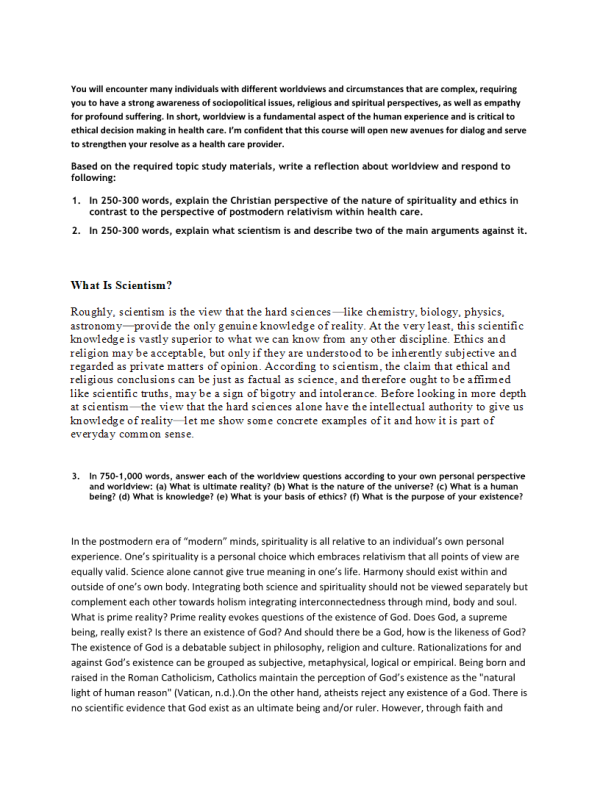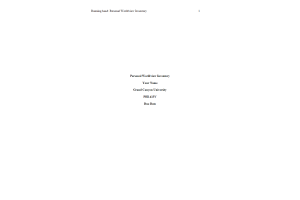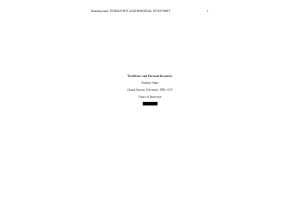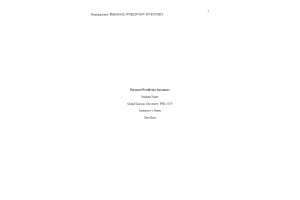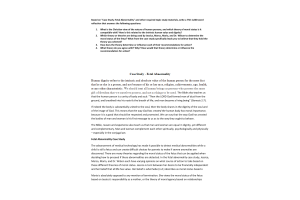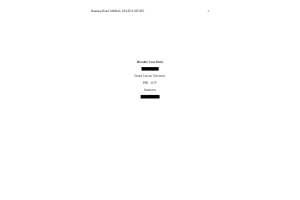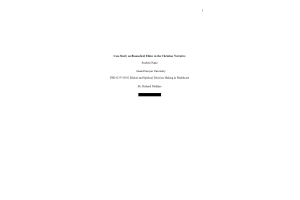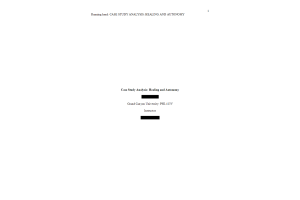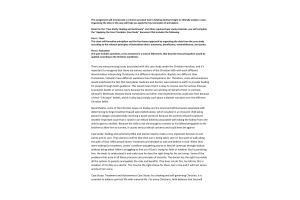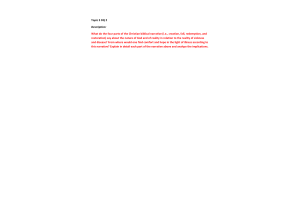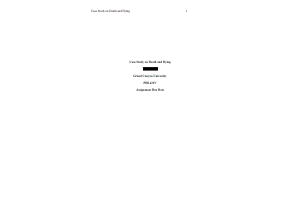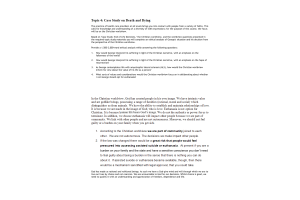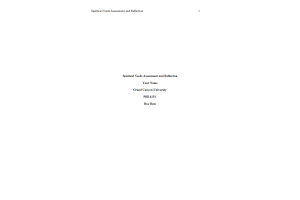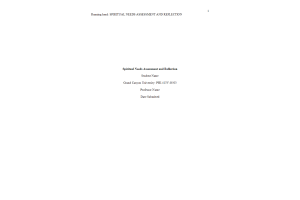PHI 413V Topic 1 Assignment; Worldview & Personal Inventory
- $20.00
Content Preview
What Is Scientism?
Roughly, scientism is the view that the hard sciences—like chemistry, biology, physics, astronomy—provide the only genuine knowledge of reality. At the very least, this scientific knowledge is vastly superior to what we can know from any other discipline. Ethics and religion may be acceptable, but only if they are understood to be inherently subjective and regarded as private matters of opinion. According to scientism, the claim that ethical and religious conclusions can be just as factual as science, and therefore ought to be affirmed like scientific truths, may be a sign of bigotry and intolerance. Before looking in more depth at scientism—the view that the hard sciences alone have the intellectual authority to give us knowledge of reality—let me show some concrete examples of it and how it is part of everyday common sense.
- In 750-1,000 words, answer each of the worldview questions according to your own personal perspective and worldview: (a) What is ultimate reality? (b) What is the nature of the universe? (c) What is a human being? (d) What is knowledge? (e) What is your basis of ethics? (f) What is the purpose of your existence?
In the postmodern era of “modern” minds, spirituality is all relative to an individual’s own personal experience. One’s spirituality is a personal choice which embraces relativism that all points of view are equally valid. Science alone cannot give true meaning in one’s life. Harmony should exist within and outside of one’s own body. Integrating both science and spirituality should not be viewed separately but complement each other towards holism integrating interconnectedness through mind, body and soul. What is prime reality? Prime reality evokes questions of the existence of God. Does God, a supreme being, really exist? Is there an existence of God? And should there be a God, how is the likeness of God? The existence of God is a debatable subject in philosophy, religion and culture. Rationalizations for and against God’s existence can be grouped as subjective, metaphysical, logical or empirical. Being born and raised in the Roman Catholicism, Catholics maintain the perception of God’s existence as the "natural light of human reason" (Vatican, n.d.).On the other hand, atheists reject any existence of a God. There is no scientific evidence that God exist as an ultimate being and/or ruler. However, through faith and conviction of an individual is one to believe that God is real, influential and all knowing. What is the nature of the world around you? .......... Continue
